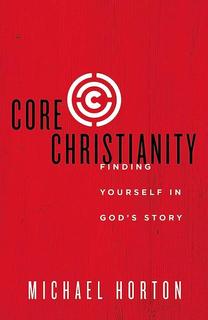The greatest challenge always facing the church is whether it will preach the gospel. Not whether the world will let us preach it—although religious liberty is always a question, and there’s a lot of hostility out there in post-Christian as well as Islamic societies—but whether we think the gospel is still the power of God unto salvation.
I’m not talking merely about what the liberals do to the gospel: essentially reinventing it as the affirmation of basically decent people. It happens in evangelical circles—including churches linked to the Reformation. We get bored.
And let’s face it, a lot of preaching and teaching today is boring and that’s a shame. But then we begin to take it for granted. It becomes an “of course”—the ABC’s of the faith that we needed to become Christians, but now we need to focus on life. As if the gospel got us started and now it’s all about us again (see Galatians 3:3). So, we subordinate the gospel to supposedly more relevant and interesting agendas.
Or, in the name of “translation” and “mission” (or just by not thinking about it), we slowly assimilate the gospel to cultural habits of thought. It's the frog in the kettle.
For example, in a highly therapeutic society, we say the words “sin” and “salvation,” but we mean (or people hear us saying) “dysfunction” and “recovery.” It’s very hard in this culture to get people to take seriously the fact that a God outside of us is going to judge us one day and there is no hope unless we are dressed in the “wedding garment” of Christ’s righteousness.
People think religion is about inner empowerment for their own life projects. This is all law, not gospel; it’s not even God’s law, but what I call “Easy Listening Law.” What they need is God’s law—his interpretation of the situation and of us—to tell us the truth.
Many people today have a supporting role for God, maybe, in their life movie, but they get mad if we tell them, “Well, actually, you die in this scene and God raises you up in Christ as a new character in his greatest story ever told.”
But those who are saved by it know how powerful it is to do that very thing to us: to insert us into Christ in whom we find our election, redemption, justification, adoption, sanctification, and glorification. Since the gospel creates the church, to whatever extent it is faithfully preached the kingdom of Christ expands and deepens. And people discover that this death of the “curved-in” self (to quote Augustine) really is their life.
Many people are leaving the church today because the alternative dramas of this fading age have captured their desires. I’m thinking especially here of my own Western context, but modernity is a global phenomenon.
There are some good exceptions, but a genuine understanding of our culture at this particular time in its history, and the role of the church within that context is rare. By and large, you either join the “Red Team” of culture-despisers (at least despisers of high culture, while wallowing in pop culture) or the “Blue Team,” selling their soul for acceptance on terms tantamount to surrender.
I don’t think that everyone has to be a cultural analyst. A pastor has more important things to do, like caring for Christ’s sheep, but part of that care is to recognize some of the reasons why many people find the Christian story non-compelling and why they find certain other big stories meaningful. Increasingly, many churches themselves don’t see the gospel as the way you not only get people in but keep them in the faith.
I don’t think that if we just preach the gospel, folks will flock in droves. That doesn’t always happen. But if we don’t treat the gospel as the message that creates and grows the church, we can be sure that such a church—big or small—isn’t part of Christ’s kingdom but someone else’s.






